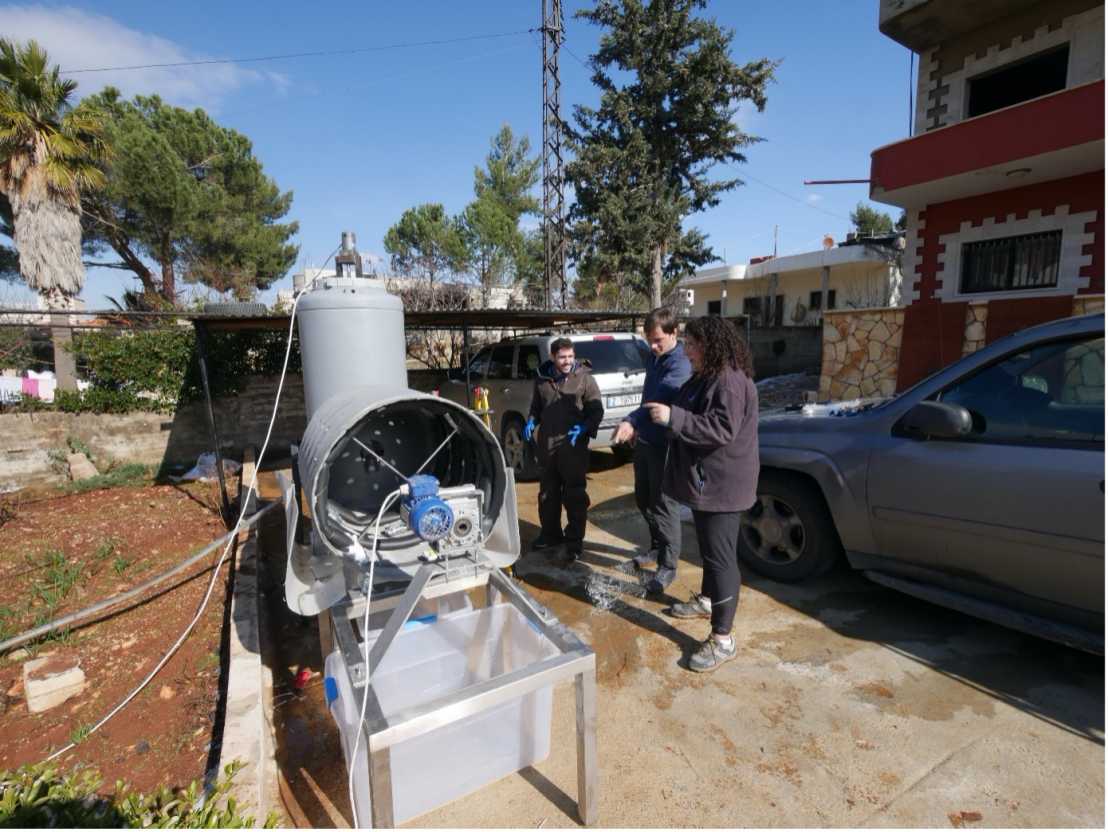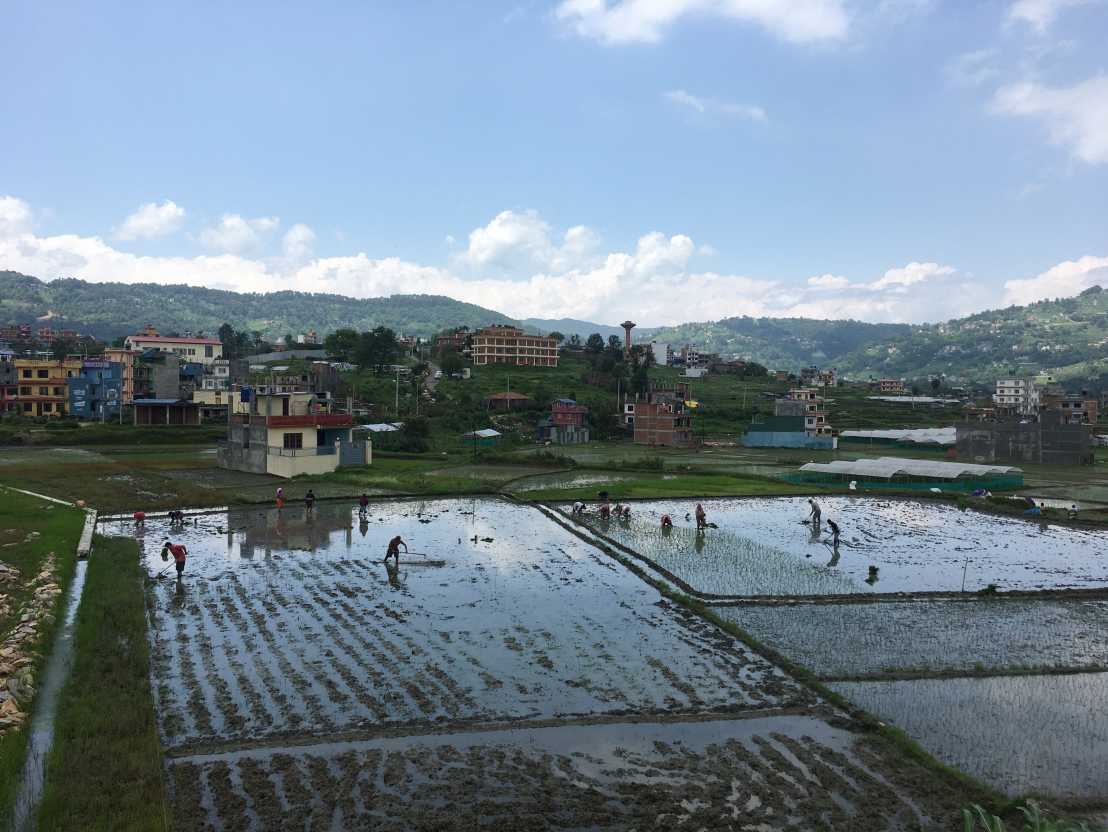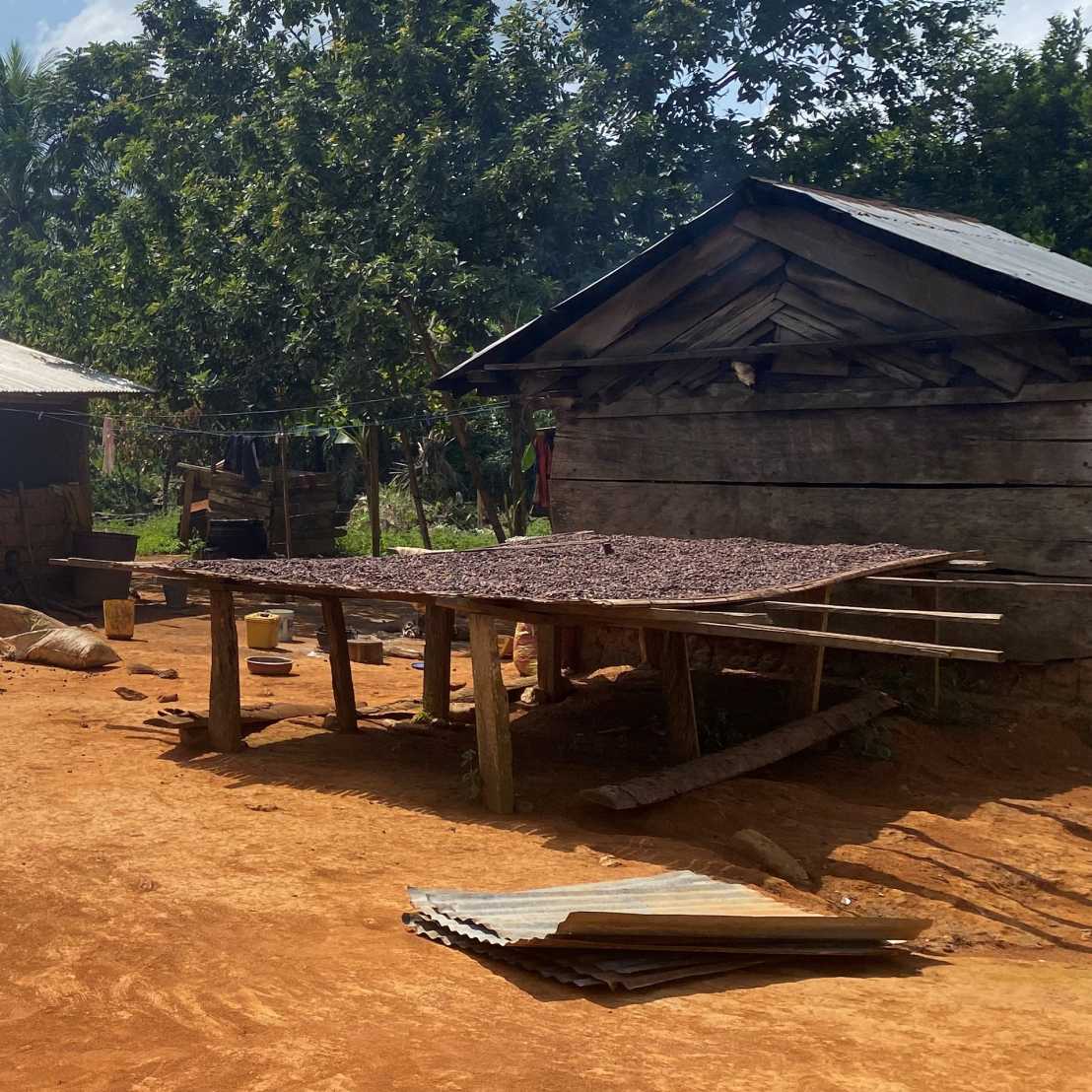ETH4D Researchers Working Towards Global Sustainable Development
With the support of the ETH4D Research Challenges and Seed Grants, more research groups at ETH are able to conduct research for global sustainable development. The topics range from reducing child labour in cocoa production in Ghana, Citywide Inclusive Sanitation in Nepal, faecal sludge dewatering in Lebanon to reusing tennis balls for seismic isolation.

Real-time Monitoring for Faecal Sludge Dewatering in Lebanon
Conditioning of faecal sludge can greatly improve dewatering performance and opens possibility for low-footprint treatment of faecal sludge. However, dosing the right amount of conditioners into faecal sludge is important, but challenging, as characteristics of faecal sludge are highly variable. This project aims to evaluate sensors for prediction of conditioner dosage to faecal sludge.
Principal Investigator: Dr. Linda Strande
Partners: CubeX, Lebanon
Project Page

Reusing Tennis Balls for Seismic Isolation
Earthquakes are one of the most fatal natural hazards, with most casualties concentrated in low-income countries. The concept of “Seismic Isolation” is an effective earthquake protection method that can mitigate these casualties; however, it is rarely used in low-income countries due to its high cost. In this project, we propose using used tennis balls filled with mortar as low-cost isolation devices. One-story masonry dwellings could be placed on these balls to allow the structure to roll on them, thus generating the isolation mechanism. We will perform tests at the component and system level to validate the system and create design guidelines to be used by practicing engineers.
Principal Investigator: Prof. Dr. Michalis Vassiliou
Partners: Centro Nacional de Investigaciones Sismologicas – CENAIS, Cuba; Dirección Provincial de la Vivienda, Cuba; Empresa Provincial de Mantenimiento Vial y Construcciones, Cuba

Informed Sanitation and System Choices for CWIS
Citywide Inclusive Sanitation is an framework for providing inclusive access to adequate and sustainable sanitation services, including the safe, effective, and sustainable management of all human waste along the whole sanitation service chain. To develop a strategic CWIS plan requires a strategic multi-stakeholder planning process. One challenge remaining is the identification of sanitation technologies along the sanitation value chain combined with viable financing and operation models. This project tests the product CWIS Planning Guideline developed in Nepal together with SaniChoice, an online tool for informed sanitation technology and system choices developped by Eawag. Based on this, a CWIS action plan will be developed and piloted in collaboration with local actors. This shall eventually trigger future collaboration and provide the ground for scaling up the use of these tools throughout Nepal.
Principal Investigator: Dr. Dorothee Spuhler
Partners: 500B Solutions Nepal; Skat Foundation, Switzerland

Reducing Child Labour in Cocoa Production
Ghana is the second leading producer of cocoa globally and Switzerland’s main supplier, where 50% of all cocoa consumed is imported from Ghana. Meanwhile, cocoa producers earn less than 5% of the final purchasing price of chocolate and poverty is a paramount issue. 50% of all children in cocoa-growing areas in Ghana are engaged in hazardous work and miss school regularly. Tackling financial hardship while incentivizing schooling seems to be key to decreasing child labour and increasing schooling. We conduct a Randomised Controlled Trial (RCT) to understand the impact of school kits (including a bag, shoes, exercise books, etc) on child labour and and learning in cocoa communities in Ghana. Although commonly applied worldwide by industry and civil society, no scientific study has analysed how this intervention affects children's work or schooling and how it could be made more cost-effective.
Principal Investigator: Prof. Isabel Günther
Partners: University of Ghana, Ghana; The International Cocoa Initiative (ICI), Switzerland
Project Page